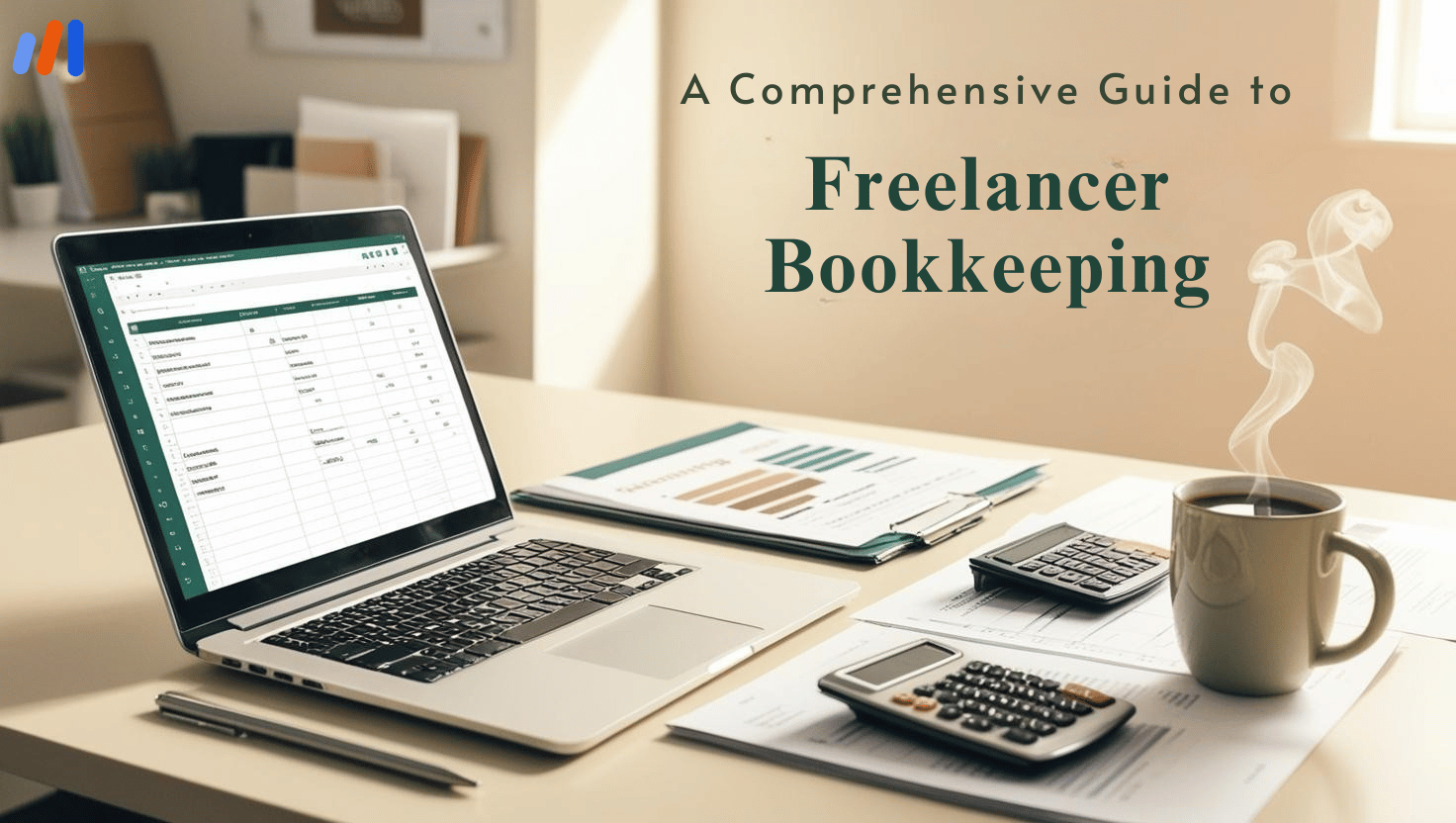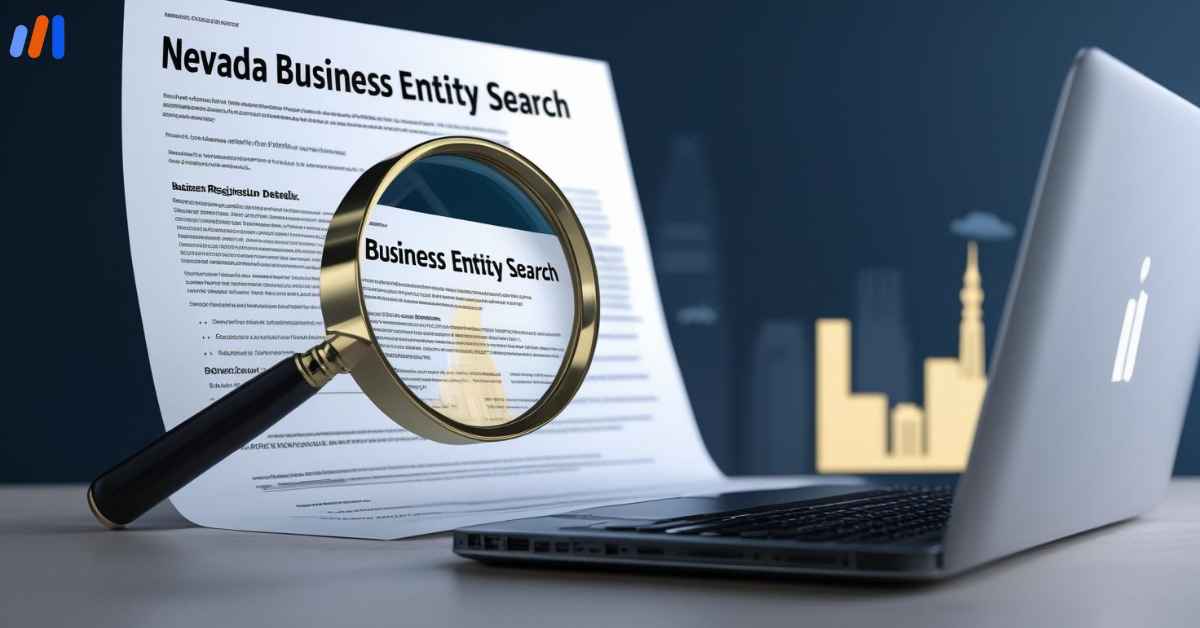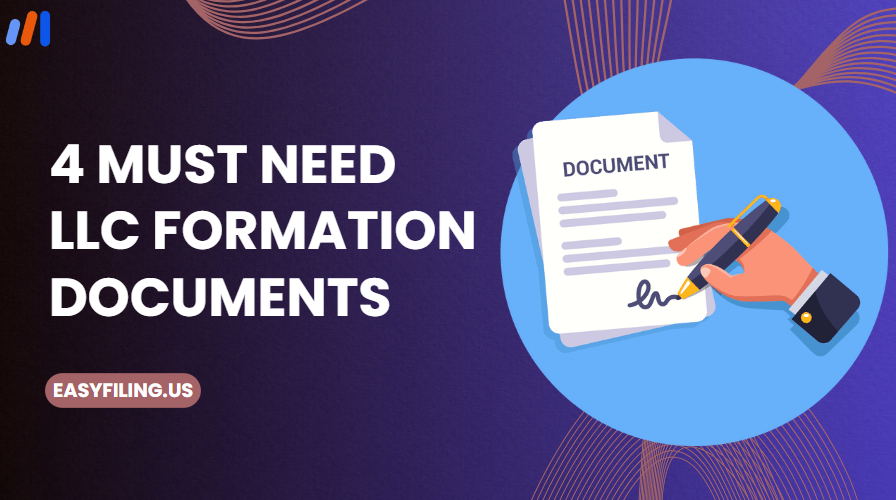Managing your finances as a freelancer can help achieve long-term goals. Bookkeeping is essential since it complies with tax regulations and sheds light on income sources, expenses, and profits made during a period.
This understanding allows you to make informed decisions, set appropriate fees, and make other business changes.
Freelancing comes with having little to no income at times, as well as the burden of high expenses. This can be staggering when it comes to tracking your finances.
Luckily, streamlining bookkeeping practices and employing the right tools adjust the focus toward growing your business and making bookkeeping easier.
In this beginner’s guide, we will walk through the most useful and effective freelancer bookkeeping, accounting tools, tax approaches, and organization steps. Here we go!
Why Bookkeeping is Important for Freelancers?
Recording expenses, categorizing costs, and documenting every financial transaction accurately are the perquisites of bookkeeping. Here’s what makes it important:
Financial Clarity: Measures income influx as well as expenses made. These insights provide context for the profit made by the business.
Tax Compliance: Ensures spending limits are set and all tax obligations can be filed precisely on time.
Expense Management: Helps find all expenses that can be claimed to save on tax.
Business Increases: Provides important financial information vital for making constructive and progressive decisions to foster growth.
Client Trust: Maintaining precise documentation will enhance your professionalism and reliability to the clients and customers.
Better Budgeting: It helps you maintain the cash flow and guarantee that there will be enough money for future business expenses.
Setting Up A Bookkeeping System

1. Keep Business and Personal Accounts Separate
The first step in bookkeeping is to split your personal and business finance streams. Set up a separate business bank account which will only be used for business freelance activities.
Using a separate business credit card will also facilitate smooth tracking of expenses. Furthermore, it makes record-keeping uncomplicated and tax compliance easier.
2. Select An Appropriate Bookkeeping Method
Freelancers have to select between two methods of bookkeeping:
Cash Basis Accounting: You earn an income when you receive the payment, and you incur the expense when you pay out. Most freelancers use this method as it is the easiest and requires minimal work.
Accrual Basis Accounting: This method records income and expenses at the point they are earned or incurred. This means that money can be received or paid at a later date. It captures the complete financial reality of the business but requires greater effort.
3. Monitor Incoming and Outgoing Cash
Monitoring every monetary interaction is important. Allocate your spending as follows:
- Office Supplies
- Software Subscriptions
- Marketing and Advertising
- Business Travel
- Professional Training
- Client Expenses
- Payments to Subcontractors
4. Apply Accounting Tools
Accounting tools aid in speeding up bookkeeping activities as well as saving time. Some of these popular tools include:
- EasyBooks: Great for freelancers because of the invoicing, expense tracking, and time management tools.
- QuickBooks: Helps with managing income, expenses, and taxes.
- Wave: A free option with limited accounting options.
- Doola: A fantastic software for freelancers to deal with bookkeeping woes.
- Xero: Another good software to aid freelancers and small businesses with bookkeeping.
Navigating Tax as a Freelancer
As a freelancer, tax management is your responsibility, which encompasses:
- Self-Employment Tax: Social Security and Medicare taxes.
- Quarterly Estimated Taxes: Freelancers are required to pay a penalty if taxes aren’t paid quarterly.
- Deductions: Home office expenses, internet, business travel, software purchases.
- Retirement Contributions: The most common recommendations are opening an IRA or any other retirement plan to lower taxable wages.
Sound Bookkeeping Practices For Freelancers Like You
1. Maintain Digital Files
To stay on top of things, keep your invoices, receipts, and statements in a digitized format. Store them in the cloud or on bookkeeping software to ensure they are easily accessible whenever you need them.
2. And One For Tax Savings
To plan accordingly for tax payments during tax season, always set aside a reasonable chunk of your income (around 25-30%). It also helps to create a separate savings account for objectives so the aim is better achieved.
3. Do Things Automatically
To save manual time and avoid mistakes, automation should be at the top of your list. Many accounting tools let you set up categorized transactions, automatic invoicing, and track expenses. It can also ease bookkeeping by connecting automation with the bank feed.
4. Analyze & Reflect On Financial Reports
Take the time to assess your financial reports to see if you need to enhance cash flow, profits, or other imperative factors. This helps you monitor important business changes so that you can make the right decisions in the long run.
5. Call An Expert Bookkeeper (When Needed).
Business owners focused on their growth should outsource bookkeeping to a professional only when things get too messy, as they will offer approaches to maximize tax benefits too.
6. Set Up a Spending Limit
Setting a budget for a quarter or monthly helps to plan for the slow months and manage expenses effectively.
7. Create Invoice Templates
An invoicing template allows for simple, quick billing which in turn ensures timely payments. Having tools that allow online payments can improve collect cash faster.
8. Watch for Where the Money Comes From
Cash flow is vital for a freelancer to manage. Make it a point to monitor pending invoices, and chargebacks, and be cautious of overspending on unneeded business assets.
How Easyfiling Can Help in Bookkeeping for Freelancers
Freelancers looking to improve their bookkeeping and ensure that everything is in order might find Easyfiling to be a valuable partner. Here is Easyfiling and Easyfiling’s team of experts can help. Write content that promotes Easyfiling’s services.
Account Book: They track income, and expenses, and categorize transactions putting them into the correct tax brackets, ensuring compliance with tax laws.
Tax Planning: They maximize tax savings on self-employment taxes, quarterly estimates, and deductions.
Xero Documents: They also provide invoices and payments through Xero documents which improve cash flow.
Cloud Access: Easyfiling provides cloud-based technology, giving real-time access to your financial data.
Consulting: Easyfiling divides expenses into paid methods and helps with budgeting, forecasting, retirement plan accounts, and other details and pays off the debts so they can provide expert advice on how to save money.
Through Easyfiling, freelancers will gain reasonable visibility on finances whilst making efforts to enhance their business.
Final Thoughts
Freelancers’ bookkeeping can sound overwhelming, but careful record-keeping and smart utilization of available resources can make overseeing the budget easy.
Setting aside tax reserves, investing in accounting technology, and maintaining accurate bookkeeping will ensure sufficient growth and stability for the business.
Developing effective bookkeeping not only enhances your organizational structure but also makes tax time less confusing.
Seek freelance bookkeeping services from specialists in freelancer accounting if you need professional assistance in managing your money.
File Your LLC Today
25$ off with a coupon
Lock in EasyFiling's transparent rates and get lifetime compliance support at no extra cost.
Get Started Now








